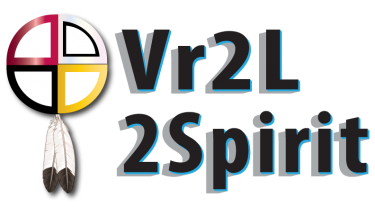Projects & Programs
Pilot HIV Intervention for men who have sex with men
 Native Americans are vulnerable to excessively high rates of sexually transmitted diseases and are the U.S. racial/ethnic group with the highest rate of illicit drug use. Among Native men diagnosed with AIDS, three quarters are men who have sex with men (MSM). Despite their risks, there is not a single empirically supported HIV prevention intervention for Native MSM. With this 2-year research project, we plan to develop an online HIV preventive intervention for substance-using Native American MSM. Incorporating a social networking peer component, it will provide a culturally grounded intervention that facilitates positive sexual health behaviors, decreases substance use and HIV risk behaviors, and provides the peer support that may best address the men’s needs.
Native Americans are vulnerable to excessively high rates of sexually transmitted diseases and are the U.S. racial/ethnic group with the highest rate of illicit drug use. Among Native men diagnosed with AIDS, three quarters are men who have sex with men (MSM). Despite their risks, there is not a single empirically supported HIV prevention intervention for Native MSM. With this 2-year research project, we plan to develop an online HIV preventive intervention for substance-using Native American MSM. Incorporating a social networking peer component, it will provide a culturally grounded intervention that facilitates positive sexual health behaviors, decreases substance use and HIV risk behaviors, and provides the peer support that may best address the men’s needs.
The proposed team of researchers has been involved in conducting preliminary research through IWRI that points to the significance and innovation of this approach and that has demonstrated their ability to work collaboratively and successfully with Native communities.
We propose a 4-phase project. The first phase involves qualitative research designed to determine basic descriptive information about Native MSM’s experience with use of the internet and acceptability and feasibility of an online internet intervention, including barriers and facilitators to recruitment and retention. We will conduct in-depth interviews (N=16) and two focus groups (N=8 each) with substance-using MSM. The second phase will involve a quantitative cross-sectional survey and needs assessment, targeting Native men in rural and remote locations, to further assess interest and potential areas for intervention. In the third phase, based on our qualitative work, we will design a culturally appropriate multi-modular online intervention in consultation with international expert Dr. Simon Rosser and faculty from the Virtual Information Behavior Environments (VIBE) Program at the University of Washington’s Information School. The final intervention may include a component run on Second Life. In phase four, we will conduct a preliminary RCT of 80 participants to assess feasibility and get an approximate estimate for an effect size. A 3-week intervention will be assessed vs. a no treatment control, with immediate post-intervention, 3-month, and 6-month follow-ups. Developing, evaluating, and implementing generalizable and sustainable HIV prevention interventions such as the type proposed are urgently needed in Indian Country to stem the syndemic of HIV and substance use.





